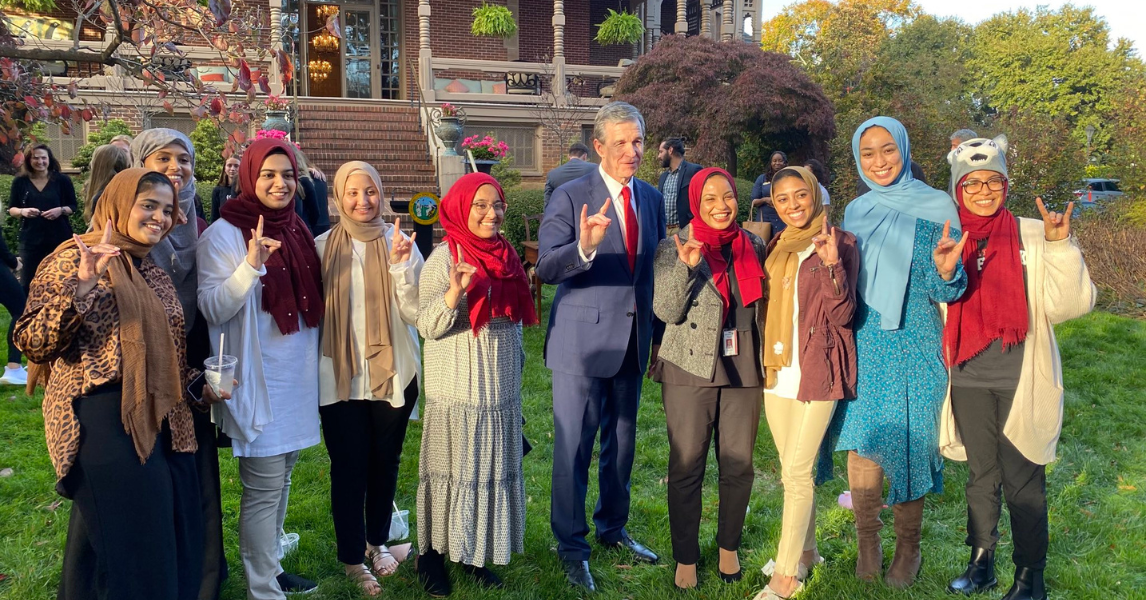Rania Hassan ’19 is Helping Shape NC’s Environmental Policies
Rania Hassan '19 is Helping Shape NC's Environmental Policies NC State College of Natural Resources News


Rania Hassan: A Champion for Sustainable Development Goals

Rania Hassan, a graduate from the NC State College of Natural Resources in 2019 with a bachelor’s degree in environmental sciences and a concentration in environmental policy, is making significant strides towards achieving the Sustainable Development Goals (SDGs). She currently serves as a policy assistant in the North Carolina Governor’s Office, where she actively contributes to various initiatives aimed at promoting sustainability and environmental justice.
Internship Experience: Addressing Plastic Pollution
During her time at NC State, Hassan interned for Don’t Waste Durham, an organization dedicated to reducing plastic pollution in Durham, NC. Her internship exposed her to the initial stages of the organization’s “GreenToGo” program, which provides reusable takeout containers at restaurants to minimize waste. Hassan witnessed the program’s expansion and its positive impact on the local community.
A Day in the Life of a Policy Assistant
Hassan’s role as a policy assistant offers a diverse range of responsibilities. Her daily tasks include attending meetings, writing policy briefs, participating in events, and handling administrative duties. She collaborates with policy advisors on various topics, such as education, workforce, health and human services, climate, and public safety. Additionally, she works with the climate and clean energy team, where she assists in staffing the Governor’s Environmental Justice Advisory Council and contributes to grant writing for environmental and climate projects in the state.
Passion for Environmental Science
Hassan’s passion for environmental science stems from her deep connection to nature. Growing up, she developed a sense of conservation through her mother’s teachings about not wasting food and preserving flowers. Her love for environmental science classes in high school solidified her decision to pursue a career in the field.
Preparation through College Education
The College of Natural Resources played a crucial role in equipping Hassan with the necessary skills for her current position. Her policy classes honed her writing abilities, which are essential in policy work. Additionally, college provided her with valuable time management and organizational skills that contribute to her success in her current role.
Making an Impact
Hassan recognizes the importance of teamwork in effecting policy change. Through her position, she has supported various policies in North Carolina, including Executive Order 246, which expands on environmental justice. She has also organized the statewide Governor’s School Supply Drive, written proclamations, and actively engaged with the Muslim community to increase awareness and support. Hassan’s efforts aim to bridge the gap between marginalized communities and government institutions.
Advice for College Students
Hassan advises current College of Natural Resources students to prioritize building connections. She emphasizes the value of networking and forming relationships with professors and professionals in the field. These connections can provide guidance and support during the transition from college to the professional world.
SDGs, Targets, and Indicators
| SDGs | Targets | Indicators |
|---|---|---|
| SDG 12: Responsible Consumption and Production | Target 12.5: By 2030, substantially reduce waste generation through prevention, reduction, recycling, and reuse | Indicator 12.5.1: National recycling rate, tons of material recycled |
| SDG 13: Climate Action | Target 13.2: Integrate climate change measures into national policies, strategies, and planning | Indicator 13.2.1: Number of countries that have integrated climate change measures into national policies, strategies, and planning |
| SDG 15: Life on Land | Target 15.5: Take urgent and significant action to reduce the degradation of natural habitats | Indicator 15.5.1: Red List Index |
| SDG 16: Peace, Justice, and Strong Institutions | Target 16.7: Ensure responsive, inclusive, participatory, and representative decision-making at all levels | Indicator 16.7.1: Proportions of positions in public institutions (national and local legislatures, public service, and judiciary) compared to national distributions by sex, age, persons with disabilities, and population groups |
1. Which SDGs are addressed or connected to the issues highlighted in the article?
- SDG 12: Responsible Consumption and Production
- SDG 13: Climate Action
- SDG 15: Life on Land
- SDG 16: Peace, Justice, and Strong Institutions
Explanation:
The article discusses Rania Hassan’s internship with an organization focused on reducing plastic pollution and waste generation. This aligns with SDG 12, which aims to promote responsible consumption and production. Additionally, the article mentions Hassan’s involvement in climate and clean energy projects, connecting to SDG 13. The mention of environmental conservation and sustainability also relates to SDG 15, which focuses on protecting and restoring ecosystems. Finally, Hassan’s work in government and engagement with different communities relates to SDG 16, which aims to promote peace, justice, and strong institutions.
2. What specific targets under those SDGs can be identified based on the article’s content?
- Target 12.5: By 2030, substantially reduce waste generation through prevention, reduction, recycling, and reuse
- Target 13.2: Integrate climate change measures into national policies, strategies, and planning
- Target 15.5: Take urgent and significant action to reduce the degradation of natural habitats
- Target 16.7: Ensure responsive, inclusive, participatory, and representative decision-making at all levels
Explanation:
The article highlights efforts to reduce waste generation through programs like the “GreenToGo” initiative, aligning with Target 12.5 under SDG 12. The mention of integrating climate change measures into policies and grant writing for environmental and climate projects relates to Target 13.2 under SDG 13. The focus on reducing degradation of natural habitats connects to Target 15.5 under SDG 15. Finally, Hassan’s work in government and engagement with different communities supports Target 16.7 under SDG 16.
3. Are there any indicators mentioned or implied in the article that can be used to measure progress towards the identified targets?
- Indicator 12.5.1: National recycling rate, tons of material recycled
- Indicator 13.2.1: Number of countries that have integrated climate change measures into national policies, strategies, and planning
- Indicator 15.5.1: Red List Index
- Indicator 16.7.1: Proportions of positions in public institutions (national and local legislatures, public service, and judiciary) compared to national distributions by sex, age, persons with disabilities, and population groups
Explanation:
The article does not explicitly mention specific indicators. However, based on the targets identified, the following indicators can be used to measure progress:
- Indicator 12.5.1 can measure progress towards reducing waste generation and promoting recycling.
- Indicator 13.2.1 can track the number of countries integrating climate change measures into their policies and planning.
- Indicator 15.5.1, the Red List Index, can assess the progress in reducing the degradation of natural habitats.
- Indicator 16.7.1 can measure the inclusivity and representation in public institutions, ensuring responsive decision-making.
4. SDGs, Targets, and Indicators
| SDGs | Targets | Indicators |
|---|---|---|
| SDG 12: Responsible Consumption and Production | Target 12.5: By 2030, substantially reduce waste generation through prevention, reduction, recycling, and reuse | Indicator 12.5.1: National recycling rate, tons of material recycled |
| SDG 13: Climate Action | Target 13.2: Integrate climate change measures into national policies, strategies, and planning | Indicator 13.2.1: Number of countries that have integrated climate change measures into national policies, strategies, and planning |
| SDG 15: Life on Land | Target 15.5: Take urgent and significant action to reduce the degradation of natural habitats | Indicator 15.5.1: Red List Index |
| SDG 16: Peace, Justice, and Strong Institutions | Target 16.7: Ensure responsive, inclusive, participatory, and representative decision-making at
Behold! This splendid article springs forth from the wellspring of knowledge, shaped by a wondrous proprietary AI technology that delved into a vast ocean of data, illuminating the path towards the Sustainable Development Goals. Remember that all rights are reserved by SDG Investors LLC, empowering us to champion progress together. Source: cnr.ncsu.edu
Join us, as fellow seekers of change, on a transformative journey at https://sdgtalks.ai/welcome, where you can become a member and actively contribute to shaping a brighter future.
|








